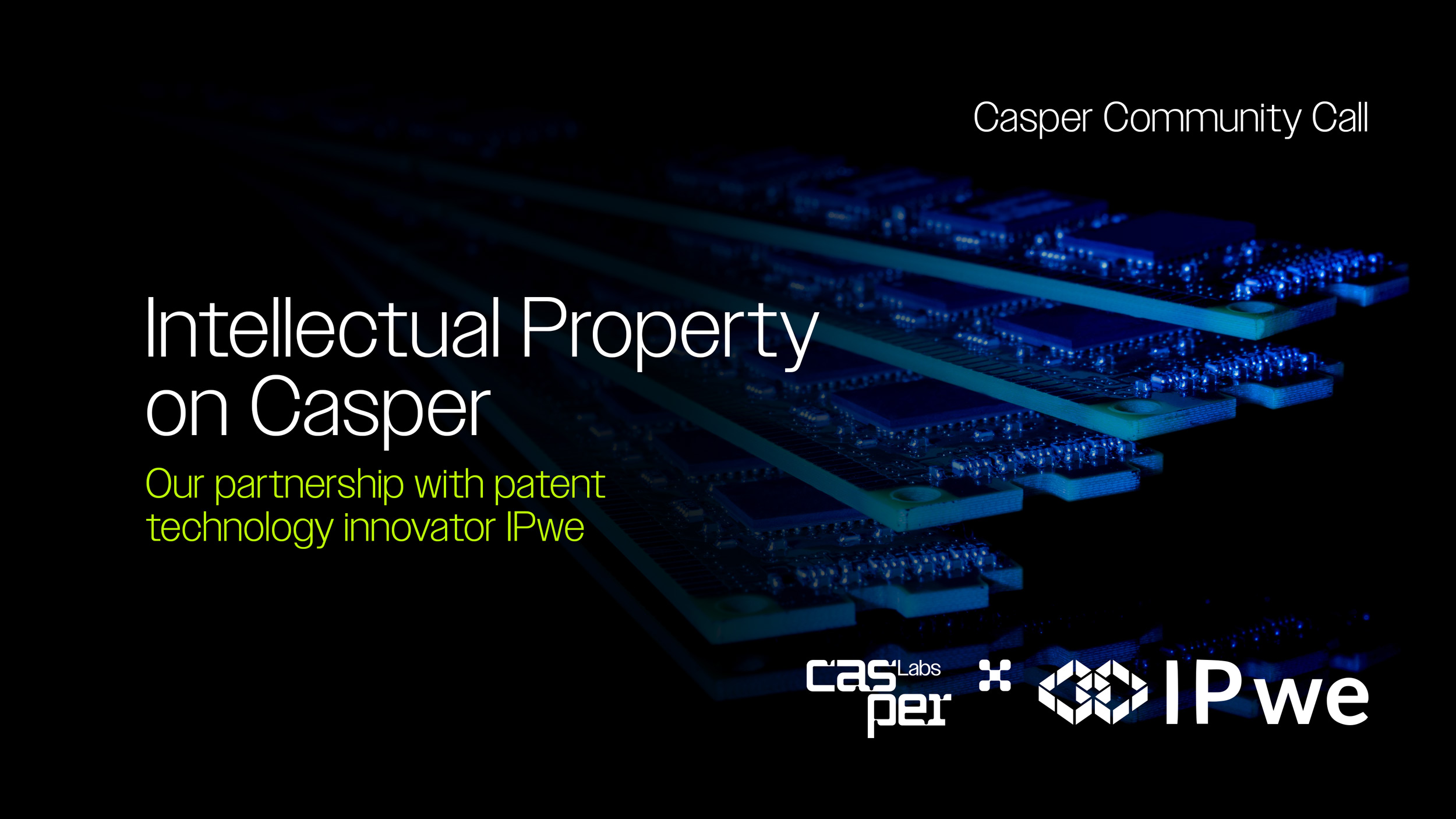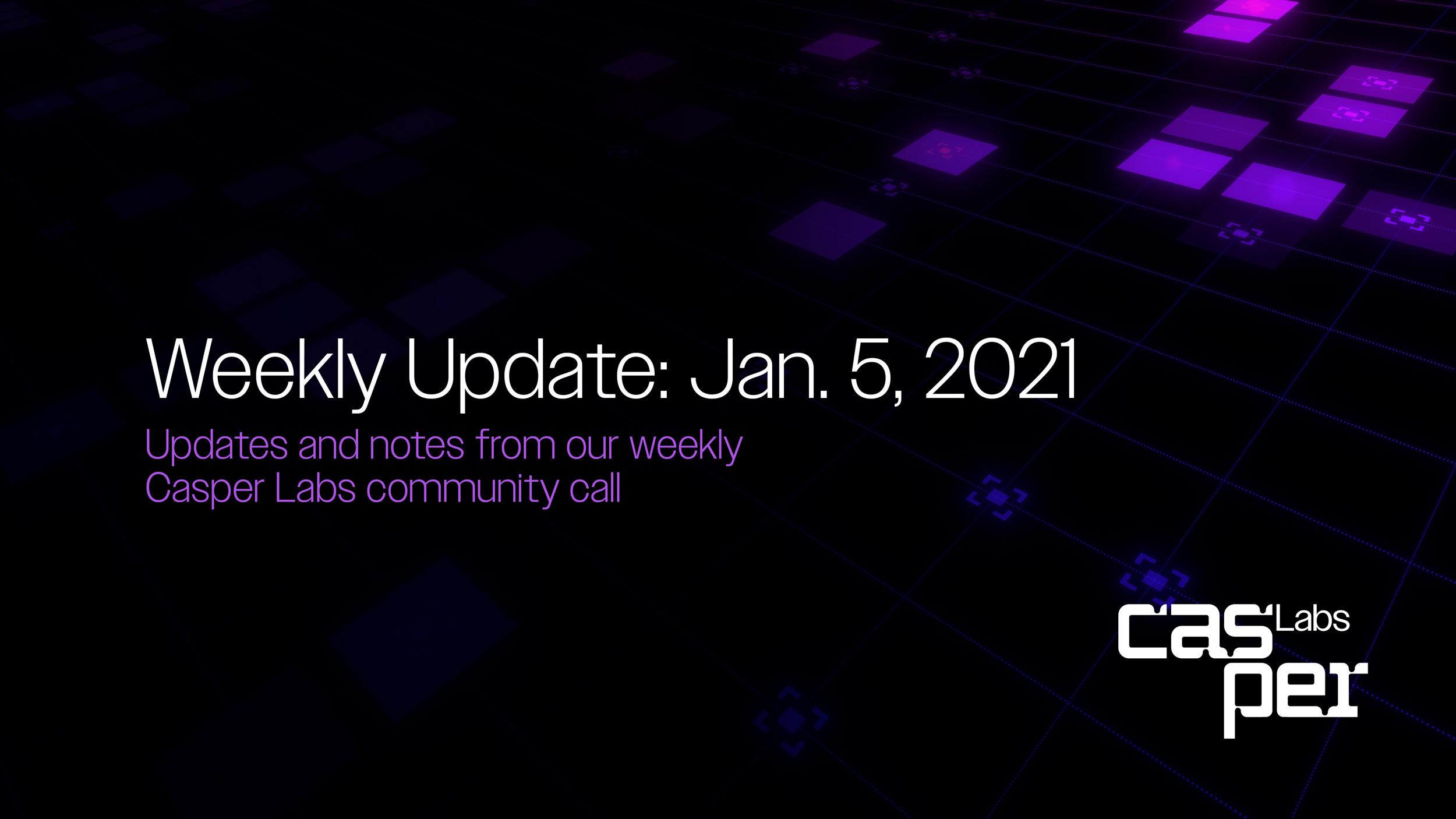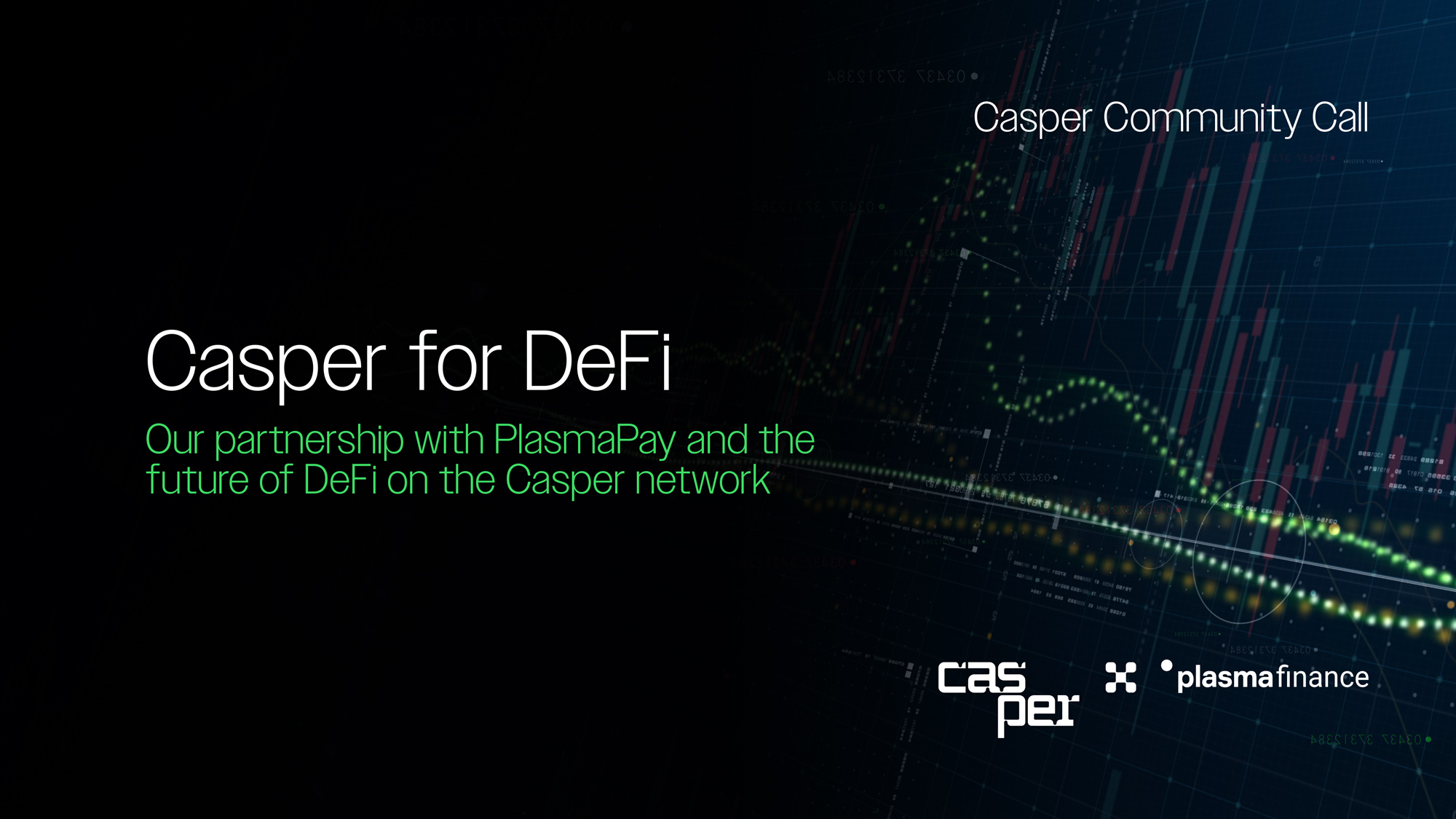On last week’s community call, CasperLabs Senior Program Manager Ashok Ranadive led the conversation about asset tracking on the Casper blockchain. Joining the community call were CasperLabs engineer Mark Greenslade, Prime Tech Partners President and HeraSoft CSO Shira Rubinoff, and Anthem Gold CEO and HeraSoft CEO Anthem Haymark. The group discussed asset tracking in light of the recent announcement about the partnership between CasperLabs and HeraSoft to build an asset tracking solution on Casper for the Anthem Gold product.
Anthem: My name is Anthem Blanchard, I'm the co-founder and CEO of HeraSoft. We are a cybersecurity company that specializes in ransomware proof technology. We started about eight years ago developing in public protocols originally to help make gold and silver more valuable and trustworthy through this inventory log that we created. We're humbled and grateful to be partnered with the CasperLabs team, it's a tremendous honor.
With Ethereum fees being where they're at, we need an enterprise processing layer and I believe after a lot of studying and a lot of patience that Casper is that layer. I'll let Shira introduce herself and then give a little bit more kind of background on her take on the company.
Shira: Hi my name is Shira Rubinoff, I am the Chief Strategy Officer for HeraSoft. I have a strong background in cybersecurity; I've run and grown two cyber companies, advised later-stage startups, and advised and consulting for Fortune 100 companies. I joined HeraSoft last year and I'm excited about HeraSoft and also its partnership with CasperLabs.
I'll like to break down the different parts of HeraSoft. HeraSoft is an enterprise software company that provides ransomware-proof solutions to private companies and governments across the world. We also have Anthem Gold, which is a stable gold company that provides a way to own gold held in the US. There’s also Hercules, which is a trusted cloud that provides ransomware proof with a hundred percent uptime guaranteed, where it is not possible to corrupt data. We’re migrating to the Casper network because Casper is a more time- and cost-efficient processing layer to cater to a greater scope of client needs and wants.
Mark: My name is Mark Greenslade, I’m an integration and solution architect at CasperLabs. I’ve worked as an engineer architect for 25-30 years across the public and private sectors in Europe. I have deep experience across a broad range of verticals and I enjoy building out complex systems.
As a solutions architect trying to deconstruct complex systems, I find blockchain as an interesting and useful technology that can be delivered at scale with deep security guarantees as we’re building here at Casperlabs.
Why did HeraSoft choose Casper and how can Casper help to solve your current challenges?
Anthem: Well, it's a big one because our challenge is world peace. I know it sounds crazy, but I believe that if we change our commercial communication from corruptible to incorruptible communication, what will happen is that we'll remove the prisoner’s dilemma game theory because we remove the fear of the unknown from the equation that causes us to act in violence. We think that it's critical for our survival and are increasing our wants and needs of enjoyment perceived to be able to move to trusted communication, which only public protocols can provide (and with Bitcoin being the strongest). The only way we can achieve this commercial ability of public protocols is to have a sufficient minimally viable number of these layers to create a minimally viable trust computer or a trusted cloud. We view Casper as really integral because the main processing layer that's predominant today for public protocol, Ethereum is showing strains and there's a lot of questions about its scalability.
Ethereum has been our processing layer and now we're looking for a substitute because for our use cases, they're not fulfilling our wants and needs on the processing layer for our clients.
What is some background on how CasperLabs is approaching the solution and what are some of the steps that we are going to take soon?
Mark: The Casper network is very close to its first iteration for mainnet, the team's been working very hard over the last two years, the pathway hasn't always been smooth. There's been some kind of refactoring, re-engineering at times but the solution has converged on a pure rust implementation so we know the platform is going to be pretty performant from a systems programming perspective. The smart contract engine that is associated with this network, the contract runtime is a rust implementation but the smart contracts themselves can be written either in rust using an embedded domain-specific language or in solidity which is then transpiled to rust using “Caspiler” from solidity to rust. We want to streamline the solidity engineers’ onboarding onto this platform and that's where the rust transpiler comes in.
The smart contract feature set has some unique features particularly around the context of smart accounts. The account model is quite different and there are some interesting use cases that they're going to allow that enables businesses to do things in a more secure way than they may do on other networks.
Technical Update
Execution
- The team has started the fourth weekly sprint of the 21.03 release cycle (Sprint 11.1). Release 21.03 marks the first production version (Mainnet Release Candidate) of the Casper protocol.
- This release will bring protocol upgrades, performance, and hardening improvements. The protocol will also complete the integration with a custody provider during this release cycle.
- We are now internally working with tag 0.7.6. We've been iterating rapidly and working with a small set of validators to get more hardening in place. We're going to resume the test net on February 8th.
Delta Testnet
Delta Testnet resumed on Feb 8th. Current status is DELTA-10
Current Focus
Highway
- The node should walk linear chain backward when syncing from the last known state.
- Debug consensus memory usage.
- Alter the behavior to always get the validators from the auction contract including era 0.
Node - Rust
- RPC-server: deploy rate limiting. We've implemented deploy rate-limiting in the RPC server so it's not possible to deny a validator service with invalid or even valid deploys. the node will start throttling so the system stays stable.
- Prototype joiner. This is a new, fast synchronization mechanism so we'll be providing shortly after launch a ‘fast sync’ so you don't have to necessarily start from the genesis block to synchronize with the network. Participants will be able to ask a node for its global state or set of nodes for its global state and receive a download from those nodes of their global state so you don't have to replay the entire blockchain from genesis and this will enable us to prune away the global state.
Ecosystem
- The team is working on enhancing the Javascript SDK. This is essential for our integration with our custody provider and we hope we finish this work this month.
- We’re participating in ETHDenver. We've got three bounties that we'll be putting out. One of which is a challenge is to build social key recovery using the Casper technology.
- Tutorial for multi-sig & key management.
Economics Research
- Sanity checking incentives distribution.
- Analysis of node-splitting incentives with the auction model.
- We will be releasing a blog post evaluating our gas and payment model and the economics behind them.
Contract Runtime
- We’re working on the token unlock schedule for VFTA Holders.
- Working on automatic staking of Seignorage rewards.
- Implementation: evict non-participating validators.
Team and Company
- Welcome new team member: Dmitry Yakovlevich, Smart Contracts developer.
Our weekly Governance/Community call holds every Tuesday:
- Time: 9:00 AM PST (16:00 UTC, Sydney +11, Beijing +8, Greece +3, Amsterdam +2, Onitsha +1, New York -4, Seattle -7)
- Location: https://casperlabs.zoom.us/j/488766416
Our weekly workshops/dApp Session holds twice a week on:
- Thursdays 07:00 am Pacific time and
- Fridays, midnight Pacific (4 pm Japanese Time). The zoom meeting ID is https://casperlabs.zoom.us/j/924713678


